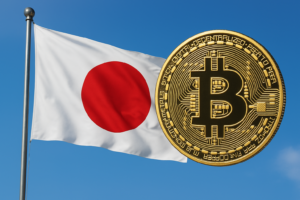Japan’s Financial Services Agency (FSA) is set to introduce a major regulatory shift by categorising cryptocurrencies as financial assets. The move will align them with stocks and other investment products.
The agency plans to amend the Financial Instruments and Exchange Act. A change will bring Bitcoin and altcoins under insider trading laws for the first time. An approach like this signals Japan’s growing commitment to establishing a secure and transparent digital asset market.

Global Trend Toward Stricter Crypto Oversight
The FSA’s proposal could be submitted to parliament as early as 2025. It should probably set the global precedent for crypto regulation. With this change, Japan aims to enhance investor protection, minimise market manipulation, and attract institutional players into the crypto space.
Japan’s decision comes as part of a broader international shift towards tighter crypto regulations. In recent months, several key financial regulators worldwide have introduced new frameworks. The aim is to bring digital assets into mainstream finance:
- The U.S. Commodity Futures Trading Commission (CFTC) has stated that crypto derivatives will be treated similarly to traditional financial products.
- The Federal Deposit Insurance Corporation (FDIC) has removed restrictions, allowing U.S. banks to engage in crypto transactions without prior approval, provided they implement proper risk controls.
- The Office of the Comptroller of the Currency (OCC) has advised banks to apply standard financial risk management principles when dealing with crypto businesses.
These updates reflect a growing global consensus that cryptocurrencies are here to stay. Japan is following this trend by creating a regulatory environment that fosters both innovation and investor security.

How does this impact Bitcoin and the Crypto Market?
Japan’s new regulatory framework could have major implications for Bitcoin and the wider cryptocurrency market:
– Greater Legitimacy: Classifying crypto as a financial asset validates Bitcoin’s role in mainstream finance, making it more appealing to institutional investors.
– More Institutional Adoption: With clearer regulations, financial institutions may feel more confident entering the crypto space, leading to higher liquidity and reduced volatility.
– Stronger Investor Protections: Applying insider trading laws to crypto markets may reduce price manipulation and fraud, making crypto investments safer.
– Global Influence: Japan has often been a trendsetter in crypto regulations. If this law passes, other countries may adopt similar policies, leading to wider global recognition of Bitcoin and other digital assets.

A Step Toward Crypto’s Future
Japan’s proposed crypto regulations mark a turning point in how digital assets are perceived within the financial world. By classifying cryptocurrencies as financial assets, Japan is not just tightening regulations. It is also legitimising the industry on a global scale.
The shift mirrors a broader trend among major economies recognising that crypto is no longer a niche market but a fundamental part of the future financial system. With clearer regulations, institutional confidence will grow, innovation will thrive, and adoption will accelerate.
As Japan leads the way, it is no longer a question of whether crypto will integrate into mainstream finance, but how fast it will reshape the global economy.
Stay informed,
Rodcas Consulting Group
